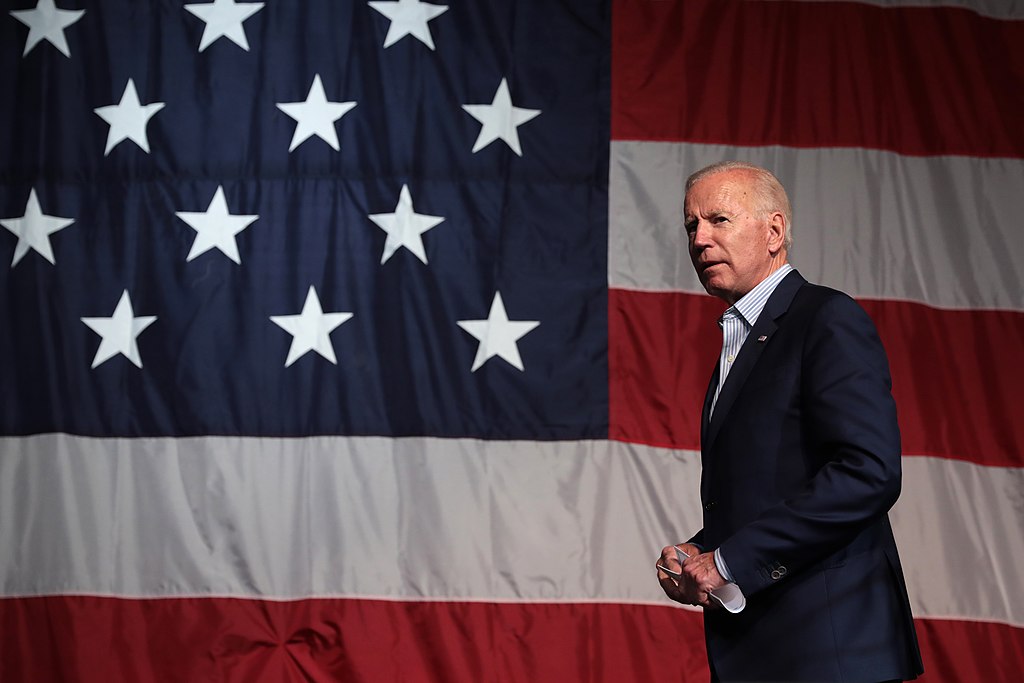President Joe Biden's decision to withdraw from the November election has reshaped the political landscape, leaving the Democratic Party scrambling. Biden, the 46th President of the United States, announced his withdrawal just weeks after a disastrous debate performance deepened concerns about his re-election prospects. The 81-year-old president's decision came amid growing pressure from his party, which feared that his candidacy could lead to a resounding defeat against former President Donald Trump.
Biden's exit marks the first time a sitting president has canceled his re-election campaign since Lyndon Johnson in 1968. In a letter posted on social media, Biden expressed his gratitude for the opportunity to serve but acknowledged that stepping down was in the best interest of the party and the country. He endorsed Vice President Kamala Harris as his preferred successor, though the Democratic Party now faces a contentious battle to choose a new nominee, Time Magazine reported.
Biden's decision followed a string of events that highlighted his vulnerabilities. A poor debate performance against Trump on June 27 raised questions about his mental understanding and ability to campaign effectively. The debate and a series of public appearances where Biden struggled to articulate his vision led to mounting concerns among Democratic lawmakers and donors. Polls showed him trailing Trump in key battleground states, and prominent donors began reallocating their support.
The situation was further complicated by an assassination attempt on Trump during a campaign rally in Butler, Pennsylvania, which heightened the stakes of the election. Biden's response to the crisis showcased his leadership but did little to quell doubts about his viability as a candidate. With Democratic leaders like Nancy Pelosi and Chuck Schumer expressing concerns, Biden ultimately decided to end his campaign and focus on fulfilling his duties as president.
The decision to step aside was difficult for Biden, who has spent a lifetime in politics. His journey to the presidency was marked by personal tragedy and political setbacks, but he persevered to become the oldest president in American history. As he exits the race, Biden leaves a legacy of resilience and dedication to public service.
The Democratic Party now faces the challenge of selecting a new nominee. At the same time, Harris is a strong contender; her low approval ratings and polarizing public image present significant hurdles. Other potential candidates, such as Governors Gretchen Whitmer, Gavin Newsom, and Josh Shapiro, may also vie for the nomination. The upcoming Democratic National Convention in Chicago will determine the party's direction.
Biden's decision has reset the race, allowing Democrats to start fresh and energize their base. As the party navigates this uncharted territory, the focus will be on uniting behind a candidate who can effectively challenge Trump and secure a victory in November.



 ICE Hiring Surge Raises Vetting Concerns Amid Rapid Expansion
ICE Hiring Surge Raises Vetting Concerns Amid Rapid Expansion  Philippines, U.S., and Japan Conduct Joint Naval Drills in South China Sea to Boost Maritime Security
Philippines, U.S., and Japan Conduct Joint Naval Drills in South China Sea to Boost Maritime Security  Israel Declares State of Emergency as Iran Launches Missile Attacks
Israel Declares State of Emergency as Iran Launches Missile Attacks  Trump Launches Operation Epic Fury: U.S. Strikes on Iran Mark High-Risk Shift in Middle East
Trump Launches Operation Epic Fury: U.S. Strikes on Iran Mark High-Risk Shift in Middle East  Argentina Senate Approves Bill to Lower Age of Criminal Responsibility to 14
Argentina Senate Approves Bill to Lower Age of Criminal Responsibility to 14  Netanyahu Suggests Iran’s Supreme Leader Khamenei May Have Been Killed in Israeli-U.S. Strikes
Netanyahu Suggests Iran’s Supreme Leader Khamenei May Have Been Killed in Israeli-U.S. Strikes  Pakistan-Afghanistan Tensions Escalate as Taliban Offer Talks After Airstrikes
Pakistan-Afghanistan Tensions Escalate as Taliban Offer Talks After Airstrikes  Iran Supreme Leader Ayatollah Ali Khamenei Killed in Israeli, U.S. Strikes: Reuters
Iran Supreme Leader Ayatollah Ali Khamenei Killed in Israeli, U.S. Strikes: Reuters  Israel Launches Fresh Strikes on Iran After Death of Supreme Leader Ayatollah Khamenei
Israel Launches Fresh Strikes on Iran After Death of Supreme Leader Ayatollah Khamenei  Denver Mayor Orders Police to Protect Protesters, Restricts ICE Access to City Property
Denver Mayor Orders Police to Protect Protesters, Restricts ICE Access to City Property  U.S.-Israel Strike on Iran Escalates Middle East Conflict, Trump Claims Khamenei Killed
U.S.-Israel Strike on Iran Escalates Middle East Conflict, Trump Claims Khamenei Killed  Dominican Republic Unveils Massive Rare Earth Deposits to Boost High-Tech and Energy Sectors
Dominican Republic Unveils Massive Rare Earth Deposits to Boost High-Tech and Energy Sectors  Trump to Address Nation as U.S. Launches Strikes in Iran, Axios Reports
Trump to Address Nation as U.S. Launches Strikes in Iran, Axios Reports  HHS Adds New Members to Vaccine Advisory Panel Amid Legal and Market Uncertainty
HHS Adds New Members to Vaccine Advisory Panel Amid Legal and Market Uncertainty  Trump Media Weighs Truth Social Spin-Off Amid $6B Fusion Energy Pivot
Trump Media Weighs Truth Social Spin-Off Amid $6B Fusion Energy Pivot  U.S.-Iran Nuclear Talks Show Progress but No Breakthrough Amid Rising Military Tensions
U.S.-Iran Nuclear Talks Show Progress but No Breakthrough Amid Rising Military Tensions  Trump Warns Iran as Gulf Conflict Disrupts Oil Markets and Global Trade
Trump Warns Iran as Gulf Conflict Disrupts Oil Markets and Global Trade 































